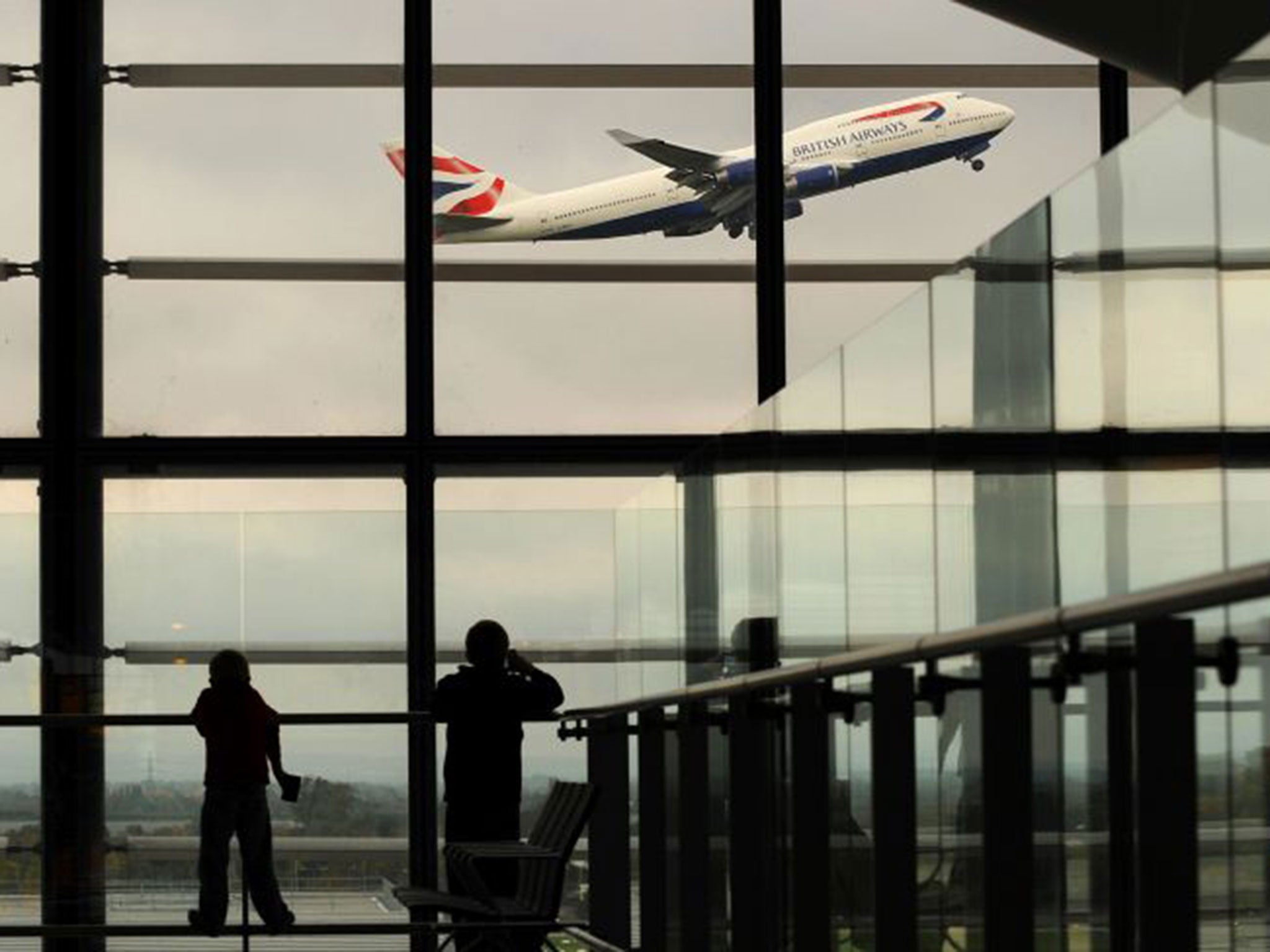Bumpy ride for Heathrow as other London airports soar
Gatwick toasted its “biggest December in history”, with 2.7 million passengers

Your support helps us to tell the story
From reproductive rights to climate change to Big Tech, The Independent is on the ground when the story is developing. Whether it's investigating the financials of Elon Musk's pro-Trump PAC or producing our latest documentary, 'The A Word', which shines a light on the American women fighting for reproductive rights, we know how important it is to parse out the facts from the messaging.
At such a critical moment in US history, we need reporters on the ground. Your donation allows us to keep sending journalists to speak to both sides of the story.
The Independent is trusted by Americans across the entire political spectrum. And unlike many other quality news outlets, we choose not to lock Americans out of our reporting and analysis with paywalls. We believe quality journalism should be available to everyone, paid for by those who can afford it.
Your support makes all the difference.Heathrow reported a surprise dip in the number of passengers passing through its terminals last month, as rival London airports such as Gatwick and Stansted unveiled yet another month of record traffic, fuelled by long-haul travellers.
Europe’s busiest airport blamed the 0.4 per cent drop on airline network changes, and noted it has nevertheless had a record year, with traffic up 2.2 per cent as nearly 75 million passengers passed through its terminals.
Gatwick meanwhile toasted its “biggest December in history”, with 2.7 million passengers, up 4.7 per cent on December 2014; Stansted had a 9.2 per cent rise, to 1.7 million. Edinburgh also reported a record festive month, up 9.1 per cent to 11.1 million.
John Holland-Kaye, Heathrow’s chief executive, said the whole of 2015 was a “banner year”, highlighting its case to build a third runway at the airport. Heathrow was helped by a surge of customers flying to China, Latin America and the Middle East.
The update came a day after the airport was put under the spotlight by reports it had paid only £24m in corporation tax in almost a decade, but handed its owners £2.1bn in dividends over the past four years. The tax bill is so low because the airport has been able to offset the interest payments it makes on its massive debt against its annual operating profits of about £840m. Its £12.5bn debt was amassed after investors bought BAA in 2006, and Heathrow only restarted paying UK tax last year.
A spokesman said that the airport “operates not only within the tax laws but also within the spirit of them”. He added that the new owners have invested some £11bn to transform the airport hub. “Corporate tax has been low to date because the Government offers tax breaks to companies to attract investment in building or upgrading infrastructure … We have around £1bn of deferred tax on our balance sheet, which will go to HMRC in the coming years.”
Join our commenting forum
Join thought-provoking conversations, follow other Independent readers and see their replies
Comments